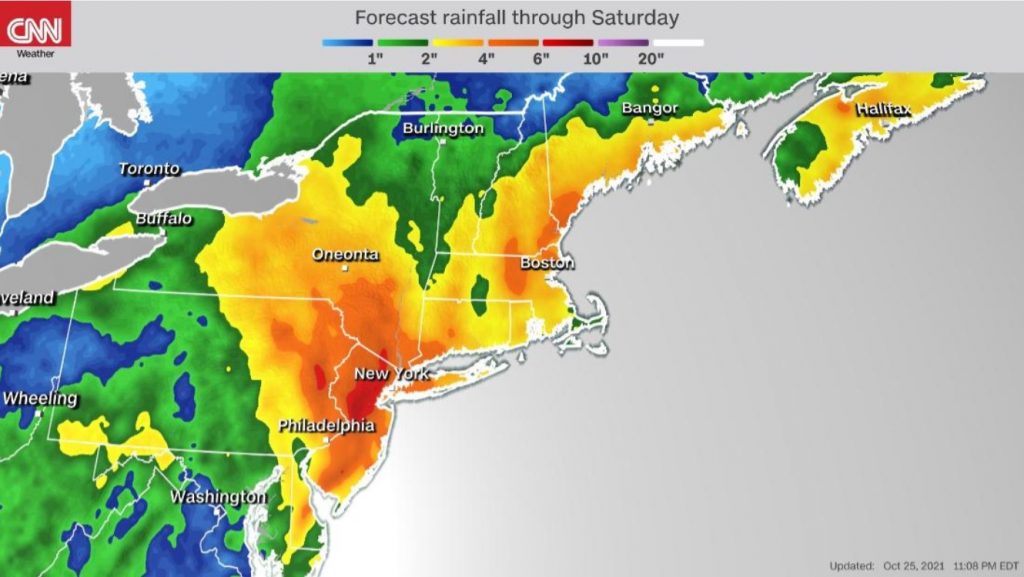(CNN) – The governors of New Jersey and New York declared a state of emergency Nor Easter This week.
In New York, Governor Kathy Hochul declared a state of emergency in more than 20 districts.
“We declare a state of emergency to provide the necessary resources to respond to this storm and to protect lives and property in areas where there is significant rainfall,” Hochul said in a statement.
“I urge New Yorkers to prepare now for the bad weather that is expected in the coming days and urge travelers to take precautionary measures against the heavy rain that is expected tomorrow morning,” he added.
Hochul ordered several government agencies early Monday to prepare to send media to the affected areas.
The state of emergency in New Jersey began at 8 a.m. Monday, Governor Bill Murphy said.
“Severe weather will affect the state starting tonight and for the next few days,” he said.
The National Weather Service has issued several flash flood warnings affecting nearly 30 million people in the Northeast from Monday night through Tuesday afternoon.
Thunderstorms with 50 to 127 mm of rainfall are possible on a large scale. Rainfall can sometimes be more than 25 millimeters per hour.
These rainfall can cause flash floods in streams, creeks, urban areas, and areas with poor drainage where rainfall is most intense.
What a Nor Easter?
A Nor Easter It is a storm on the east coast, usually with winds coming from the northeast. According to the National Weather Service. These storms can occur at any time of the year, but are most common in September and April.
In winter, it is related to temperature Nor Easter They can be more intense than in the fall, leading to more severe storms and snow. Storms can cause coastal erosion and bad sea conditions, with winds blowing at 58 kilometers or more.
The Metropolitan Transportation Authority, which oversees the New York City subway and other traffic lanes, expects 150 millimeters of rain in 12 hours, but it will not be like Hurricane Ida.
“We never expected to see the heavy rainfall we received during Hurricane Ida in a very short period of time,” said Jano Lieber, MTA President and Chief Executive Officer, who said the city received more than 89 millimeters in an hour during Ida. .
“But we’re ready for whatever comes next,” Jano added.
The biggest problem and limit facing the MTA is the city’s sewer system, which will be as high as it did during Ida, Jano said. However, they did not expect it to be a problem during the storm.
CNN’s Jean Norman, Rob Fries and Keely Westhoff contributed to the report.

“Music ninja. Analyst. Typical coffee lover. Travel evangelist. Proud explorer.”

:quality(85)/cloudfront-us-east-1.images.arcpublishing.com/infobae/TEQF6EONZRFGLLLDIDD4L2O4EE.jpg)

:quality(75)/cloudfront-us-east-1.images.arcpublishing.com/elcomercio/XU32LRAEZFDDPNVHLFU3CKVBYY.jpg)



More Stories
Earthquake in the US today, Wednesday, May 29 – Earthquake’s exact time, magnitude and location via USGS | USGS | composition
President Arrivalo is left with no alternatives to dismissing the Attorney General
Passenger dies after jumping off world’s largest cruise ship in Florida